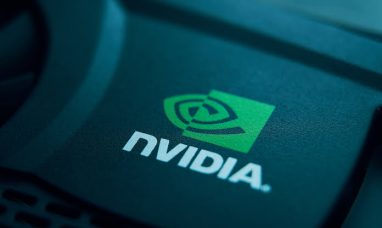The owner of Saks Fifth Avenue, Hudson’s Bay Co., is set to acquire Neiman Marcus Group for $2.65 billion, merging two of America’s largest high-end department-store chains. This move aims to secure a larger market share in a slowing retail industry. Amazon.com Inc. (NASDAQ:AMZN) and Salesforce Inc. (NYSE:CRM) will assist in the deal by taking minority stakes in a new company called Saks Global.
Financial Details and Strategic Moves
Hudson’s Bay Co. will finance the deal with $2 billion raised from investors, while affiliates of Apollo Global Management will provide $1.15 billion in debt financing. Although representatives for Salesforce and Amazon declined to comment on the deal, the statement confirmed their involvement without disclosing the size of their investments.
The combined entity will manage 39 Saks Fifth Avenue stores, 36 Neiman Marcus locations, and two Bergdorf Goodman stores in Manhattan. The merger aims to cut costs and increase profitability through enhanced bargaining power with vendors and reduced supply-chain expenses.
Marc Metrick, CEO of Saks Fifth Avenue’s online operations, will lead Saks Global. He stated, “How do you future-proof a brand like Saks or Neimans or Bergdorf? You do that through technology.”
Tech Giants’ Involvement
The involvement of Amazon and Salesforce adds a significant dimension to the deal. Neil Saunders, a GlobalData analyst, noted that Amazon’s stake “adds a bit of spice to an otherwise predictable deal,” as it indicates Amazon’s ambitions to enter the luxury space more robustly. This move is one of Amazon’s first significant investments in a physical retailer since acquiring Whole Foods Market in 2017.
Salesforce, known for partnering with luxury brands such as Louis Vuitton and McLaren, usually invests in software startups rather than retail companies. This investment marks a notable shift in its strategy.
Real Estate and Market Impact
The US department store landscape is undergoing significant changes. Nordstrom Inc.’s (NYSE:JWM) founding family is contemplating taking the retailer private, and Macy’s Inc. (NYSE:M) is implementing a turnaround plan, including closing almost a third of its stores. A decline in share prices across department stores has fueled recent deal activity, with real estate being a key motivator.
The combined company will have a US real estate portfolio worth $7 billion. This merger could be a positive development for New York commercial real estate, which has struggled since the pandemic.
Market Overlap and Competitive Landscape
Geographically, there is minimal overlap between Saks and Neiman Marcus stores. Saks has a stronger presence on the East Coast, while Neiman Marcus dominates the southern and western US. Both chains experienced a surge in sales from late 2020 through 2022, driven by pandemic savings, but these gains have since faded due to rising inflation.
Competition from luxury brands such as those owned by LVMH, Kering SA, and Richemont has also increased, as these brands focus on selling directly to consumers through their own websites and stores, reducing their reliance on department stores.
Antitrust Concerns
Analysts anticipate that the Saks-Neiman deal will attract antitrust scrutiny from regulators. Under Federal Trade Commission Chair Lina Khan, the agency has challenged a significant number of mergers. In April, the FTC sued to stop the owner of the Coach brand from acquiring the parent of Michael Kors, marking the first time the agency intervened in the fashion-accessories sector.
Marc Metrick acknowledged the regulatory process, stating, “I have to respect the process that the FTC is going to go through.” Saks Global plans to enhance both brands’ websites and invest in store improvements, promising a better shopping experience for consumers.
Featured Image: Unsplash © christianw









